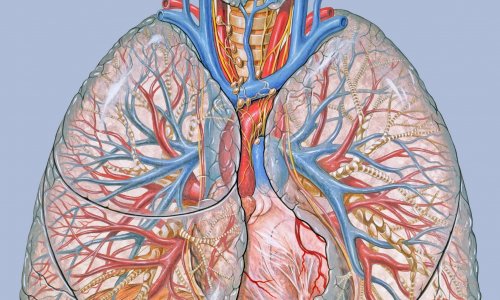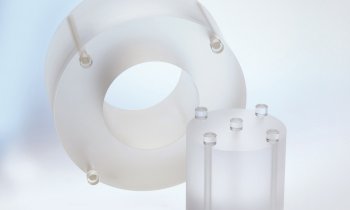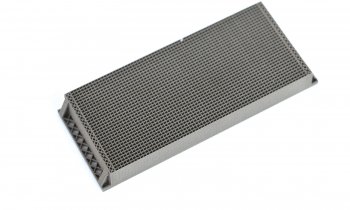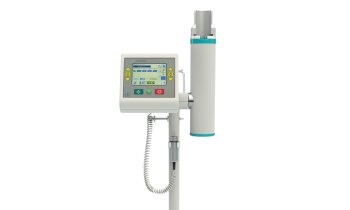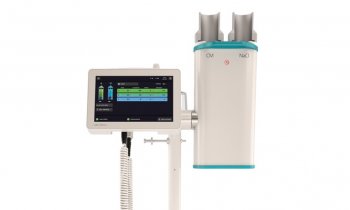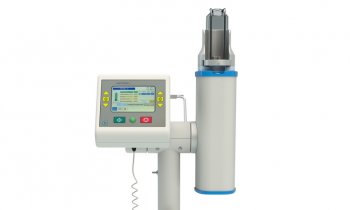© Sebastian Kaulitzki – stock.adobe.com
News • Experts propose combination strategy
Kidney cancer: early detection through 'piggyback' screening
Combining screening for lung and kidney cancers – for both of which smoking is a risk factor – could help identify undiagnosed cases of kidney cancer, say researchers as they release the results from a study showing this approach is feasible and acceptable to participants.
Early detection of cancer allows the best chance of cure using effective treatments such as surgery. The UK has recently approved a screening programme for smokers at greatest risk of lung cancer. The programme makes use of lung computed tomography (CT) scans, which build up a detailed picture of the inside of an individual’s body by taking multiple x-rays. Certain cancers, however, are relatively rare and standalone screening programmes are unlikely to be cost-effective. One such disease is kidney cancer. Kidney cancer is the ninth commonest cancer in men and 14th in women, and is largely curable if treated at an early stage. But almost nine in ten patients (87%) will have no symptoms at the stage when it is still curable.
As lung and kidney cancers share risk factors, Yorkshire Cancer Research, in partnership with experts at the University of Cambridge, established the Yorkshire Kidney Screening Trial to see whether screening for kidney cancer could take place at the same time as screening for lung cancer. The results are published in European Urology.
This approach helped us identify serious findings in one in 20 participants that carried a real prospect of seriously threatening life span, or of having a substantial impact on their lives
Grant Stewart
“Kidney cancer is curable if we catch it early enough, but it’s a largely silent disease at that stage, making it very difficult to spot," says Professor Grant Stewart, an urological surgeon at the University of Cambridge and Chief Investigator on the trial. "We know that smokers who are at high risk of lung cancer are also at increased risk of kidney cancer, so it makes sense to see if we can look for both conditions at the same time.”
Abdominal CT scans were offered to 4,019 ‘ever-smokers’ – that is, people who had smoked at some period in their life – aged 55-80 years old who were attending a lung cancer screening trial between May 2021-October 2022. Of those offered the additional abdominal scan, more than nine in 10 (93%) accepted. Of these, almost two-thirds (64%) were found to have normal abdominal scans. One in five (20%) required an imaging review but no further action. 15% required further investigations at a clinical review.
One in twenty (5.3%) participants had a previously-undetected serious finding only seen on the abdominal CT scans, including kidney and other abdominal cancers, abdominal aortic aneurysms (a swelling in the artery that carries blood from the heart to the abdomen, which can be serious because they risk bursting) and kidney stones. Professor Stewart added: “We were able to make use of an existing targeted screening study to ‘bolt-on’ an additional screening test. Patients were very receptive to be screened for several conditions, and this approach helped us identify serious findings in one in 20 participants that carried a real prospect of seriously threatening life span, or of having a substantial impact on their lives.”
Recommended article
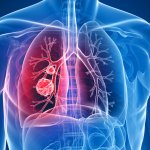
Article • AI is key
Lung cancer screening initiatives across Europe
Artificial Intelligence will be a critical component in ensuring a Europe-wide lung cancer screening programme can achieve its potential, according to speakers at a special ECR 2024 session. Delegates heard that the SOLACE project (Strengthening the screening of Lung Cancer in Europe) will be supported by AI in terms of workflow, diagnostics, and image and data analysis.
A concern with any screening programme is the identification of incidental, non-serious lesions that do not require treatment but carry the risks associated with diagnosis and treatment, create unnecessary anxiety for these individuals, and potentially divert healthcare resources away from other conditions. In the Yorkshire Kidney Screening Trial, a quarter of participants (25%) had non-serious findings. However, because the trials was set up to allow a robust clinical review of the radiological findings and clear lines of communication with associated specialities to determine if further tests or clinics were needed, only a third of these (8.5% of participants) had incidental findings that triggered further action in the form of further clinic appointments or investigations.
A sub-study published separately in BJU International also showed that those with non-serious findings did not have lasting psychological, social or financial harms. Speaking on behalf of the trial funder, Dr Stuart Griffiths, Director of Research at Yorkshire Cancer Research said: “People with kidney cancer are often diagnosed at a late stage when treatment options are more limited. Screening people before they experience any symptoms means the kidney cancer can be found at a very early stage – enabling many people to receive life-saving treatment. Adding an abdominal CT to the recently approved lung cancer screening programme provides a vital opportunity to improve early diagnosis and save thousands of lives in Yorkshire and across the UK.”
Source: © University of Cambridge (CC BY 4.0)
26.09.2024



